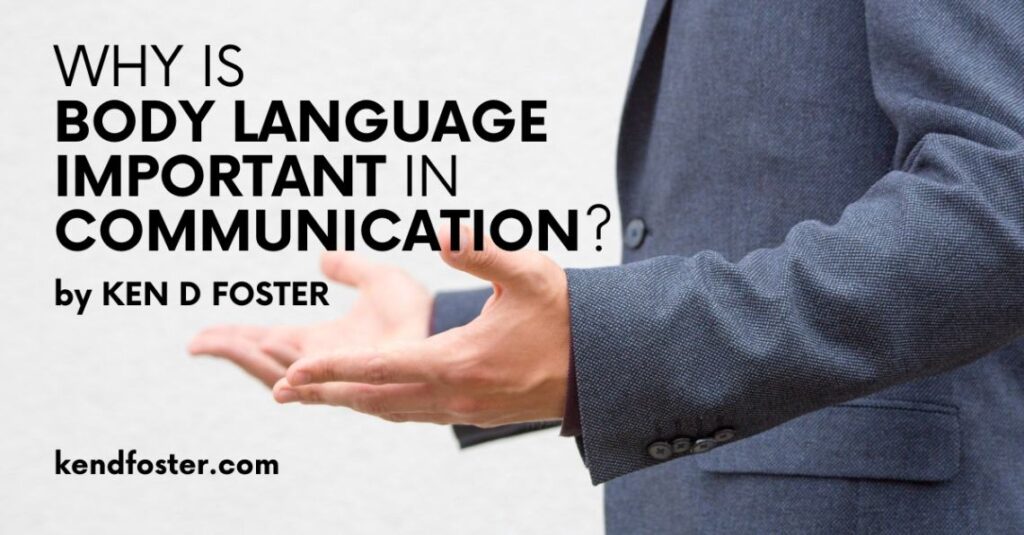
Communication is more than just spoken words. Your body language adds depth and meaning to your interactions. It can enhance or diminish the impact of your words. In this article, let’s discuss why body language is important in communication.
What Is Body Language?
Body language is the unspoken messages and emotions you convey through facial expressions, body movements, posture, and gestures. It can either amplify or contradict verbal communication. Body language is as important as the words you use to communicate in interpersonal communication.
Importance of Body Language in Communication
1. Express Emotions
Your body language can tell a lot about how you feel, from joy and excitement to sadness and frustration.
Imagine a friend sharing exciting news with a flat and boring voice and a poker face. It probably won’t interest you, right? Our bodies have a unique way of expressing emotions that goes beyond the capabilities of words alone. A smile, a frown, or even a raised eyebrow can convey happiness, sadness, or surprise.
2. Build Trust
People trust non-verbal signals more than verbal ones. Your words need to align with your body language to build trust and form the foundation of strong interpersonal connections.
A firm handshake conveys that you’re confident and trustworthy. A genuine smile, open posture, and maintaining eye contact convey sincerity and honesty. Conversely, crossing your arms, fidgeting with something in your pockets, and avoiding eye contact indicates discomfort or lack of confidence.
3. Enhance Understanding
Facial expressions, gestures, and posture can complement verbal messages. They help clarify the speaker’s intent and make the communication more comprehensive.
4. Bridge Cultural and Linguistic Gaps
Languages change every mile, but body language doesn’t. A head nod, a pat on the back, or a handshake breaks linguistic barriers, fostering connection. Body language helps people from different cultures to meet and communicate without stumbling over language constraints.
With that being said, remember that some cultural traditions vary from country to country. For instance, people in the Middle East greet others by hugging (same gender). While in the Western world, they shake hands. It’s necessary that you adapt yourself to the culture of the country you live in.
5. Convey Professionalism
In the corporate world, first impressions often depend on non-verbal cues. A firm handshake, confident posture, and proper dressing convey professionalism. Whether you’re an employee going for an interview or an entrepreneur networking an event, your body language sets the tone for how others perceive you.
6. Detect Deception
Body language helps find whether a person is lying or telling the truth. If there are inconsistencies between the words he speaks and his body language, you can assume he’s lying.
For example, imagine a scenario where a person is asked about their whereabouts on a particular evening. The person says he was at home all night, but his body language tells a different story. As he responds, he avoids eye contact, fidgets with objects, or shifts weight from foot to foot, all of which indicate nervousness.
In this case, the inconsistency lies in the contradiction between the spoken words (“I was at home all night”) and the nervous body language, suggesting a possible misalignment between the verbal statement and the person’s actual experiences. These inconsistencies may prompt further inquiry or investigation to determine the accuracy of the individual’s statement.
7. Enhance Persuasion Skills
Have you ever tried convincing someone with a shaky voice and slouched shoulders? You’ll probably get lost when delivering the message. Confident posture, purposeful gestures, and appropriate facial expressions will make communication more effective.
Whether in a boardroom or a casual conversation, commanding body language can make your arguments more compelling and influence the opinions of others.
Conclusion
Body language adds depth and meaning to the words you speak. So, the next time you engage in a conversation, pay attention to your body language. When you master the art of body language, you’ll notice that people listen to you.
Effective communication is crucial for a business owner. If you need help with it, get in touch with Ken D Foster. With over 30 years of experience in personal and professional development, Ken will give you tried and true strategies to enhance your communication skills.
Ken D Foster is a best-selling author, transformational leader, business strategist, and producer of the Voices of Courage Show, syndicated in 185 countries.


